Retirement is a stage of your life that you should anticipate. After decades of hard work, you should be able to relax and enjoy plenty of free time.
When it comes to retirement, you want to make sure you feel safe and secure. Making sure that you have the right financial support and services is important for this.
Before you retire, you need to make sure that you have good pension services. Otherwise, your retirement may not be as relaxing as you would hope.
Ensuring that you get the right help is definitely something you want to do before you retire. Although you might be eager to enter retirement, being prepared will make for a more enjoyable experience.
The mandatory retirement age in Ireland is 66. However, this can differ based on saved income, health requirements and other reasons. This shows that each retirement situation is unique, and you should treat your own as such.
Getting pension help can be straightforward. Thanks to services such as the National Pension Helpline, you can have a team of experts give you the help you need.
Thanks to these professions, you can really begin to look forward to the retirement that you deserve.
Table of content
What supports are available in retirement
There are many different supports in place for people in retirement. Based on your situation, some might be more helpful to you than others.
It is important that you are able to look at the different services and avail of the right ones.
You can find the available supports listed below:
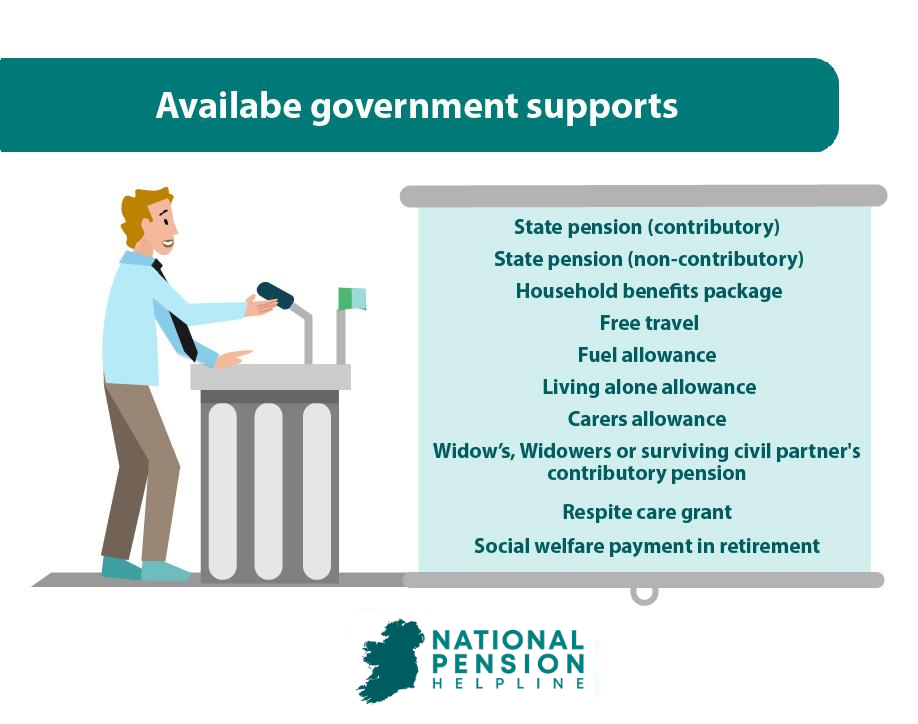
State Pension (Contributory)
State Pension (Contributory) is paid to Irish citizens who are the age of 66 or older. This payment is made to individuals who have made enough PRSI contributions throughout their career.
This payment is often referred to as old-age pension.
The State Pension (Contributory) allows you to still receive income alongside your pension. This is due to the fact that this support is not means tested.
Even if you retire early, you can still choose to make PRSI contributions. This will help you when you reach the age of 66 to receive the State Pension (Contributory).
State Pension (Non-Contributory)
State Pension (Non-Contributory) is for individuals who do not qualify for State Pension (Contributory).
It is also available to people aged 66 and older.
In order to qualify for State Pension (Non-Contributory) you must pass a means test. This looks at the current income you have.
Your income is assessed by both your cash income and your capital. The cash earnings that you and/or your partner have will be taken into consideration. As well as your capital, which includes property, shares, investments and savings.
Your own home is not included in your capital.
You can earn up to €200 per week without it affecting your State Pension (Non-Contributory). As can your spouse or cohabitant.
Income above this amount will be assessed within the means test.
You also must be living in Ireland and meet the requirements of the habitual residence condition.
Household Benefits Package
The Household Benefits Package is designed to help retired people care for their household bills. This includes the likes of electricity, gas and other necessities.
Only one person per household is applicable for the Household Benefits Package.
You must be aged 70 or older to qualify for the Household Benefits Package.
The Household Benefits Package is not means tested.
You must have a year-round residence in Ireland to receive the Household Benefits Package. Your name must also be on the bills that you are declaring.
Free Travel
If you are aged 66 or over and live in Ireland permanently, then you will qualify for free public transport. This means you do not have to pay fees on the likes of buses, trains and some private services.
Services that allow you to use your free travel include:
For married persons over the age of 66, your spouse may also be able to travel free with you. This is based on meeting a certain criteria.
If you are unable to travel alone, then you are allowed to have a person aged 16 or above travel with you for free.
Should you qualify for free travel, your Public Services Card will display the criteria you qualify for. FT will be displayed in the top-left corner of your card.
Fuel Allowance
Fuel Allowance is a payment designed to help people in retirement heat their homes in the winter.
The Fuel Allowance payment begins in late September and is paid until April.
Currently, the Fuel Allowance is set at €33 per week. However, you can choose to get it paid to you in two lump sums or weekly.
Only one person in any given household can receive the Fuel Allowance payment.
If your heating costs are covered as part of your accommodation, you will not qualify for the Fuel Allowance.
You must be 70 years or older to qualify for the payment. You do not need a qualifying payment.
Living Alone Allowance
For people living alone and receiving financial support, the Living Alone Allowance acts as an extra payment.
You can qualify for this payment if you are 66 or older and living alone.
If you are living in the extension of a family member’s home, you can still qualify for the Living Alone Allowance. You can also qualify when living in sheltered accommodation.
In 2023, the Living Alone Allowance was an additional €22.
Carer’s Allowance
A Carer’s Allowance is given to those who care for people in need of support. This can be given to those caring for people dealing with old age, illness or disabilities.
Qualification for Carer’s Allowance is based on current income. Earning over a certain amount will disqualify you from receiving the payment.
If you currently receive a social welfare income, then you will not qualify for the full Carer’s Allowance. Instead, you may receive a half rate allowance.
When caring for multiple people, your allowance can be increased by up to 50% on a weekly basis.
Widow’s, Widower’s or Surviving Civil Partner’s Contributory Pension
People who have a deceased spouse or civil partner may be entitled to a Contributory Pension. You must be a widow or surviving civil partner in order to receive the pension.
Even if a partnership has dissolved, you can still qualify for the pension if you would have been applicable when the partnership remained.
There is no means test for the Widow’s, Widower’s or Surviving Civil Partner’s Contributory Pension. This means that your current income does not affect if you are applicable or not.
You must have made a certain amount of PRSI contributions in order to qualify for the Widow’s, Widower’s or Surviving Civil Partner’s Contributory Pension.
Respite Care Grant
The Respite Care Grant is now referred to as the Carer’s Support Grant. It is an annual payment for those who are required to take care of an individual.
To qualify for the Respite Care Grant, you must be over the age of 16. You must also reside in Ireland.
You must be caring for the person on a full time basis, or be caring for the person for a minimum period of 6 months. It is also applicable to live with the person whom you are caring for.
During the caring period, you are not permitted to work more than 18 and a half hours per week. You also cannot exceed this weekly hourly limit in education or training.
Those currently receiving jobseeker’s benefit or allowance will not be applicable for the Respite Care Grant.
How much do you need to retire in Ireland
To retire in Ireland, you should be making a minimum of €22,000 per year. It is also a good idea to have half of your gross income in savings, for unpredicted costs.
The average wage of a working person in Ireland is roughly €45,000. The average pension pot in Ireland is roughly €104,000.
A pension pot is the amount of money contributed to your pension by you and your employer.
The maximum rate of State Pension in Ireland is €277.30 per week.
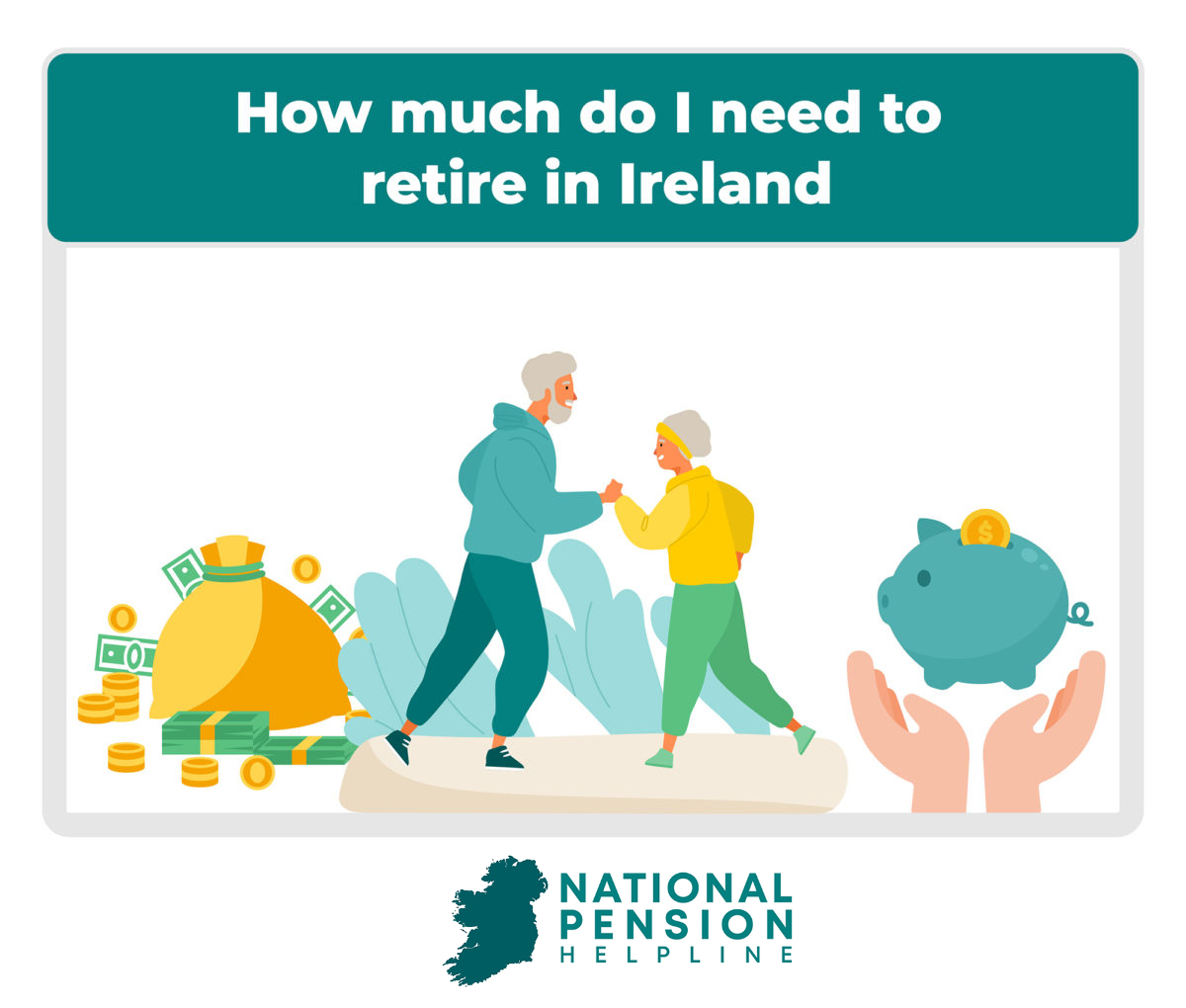
Retirement Expenditure
Pension is important to retired individuals as there are still expenses to be paid.
For any individuals who are renting, getting a proper pension is important to cover these costs. Without proper pension support, covering these payments could be very difficult.
Day to day expenses such as groceries, clothing and other necessities are also a form of retirement expenditure.
To keep your home warm and comfortable, there may be fuel expenses that you have to cover.
If you are still driving in your retirement, you may have petrol or diesel costs that need regular payments.
Should there be dependent children in the household, then this can be a major retirement expenditure.
With the ever increasing cost of living crisis, it is getting harder and harder for people to afford retirement.
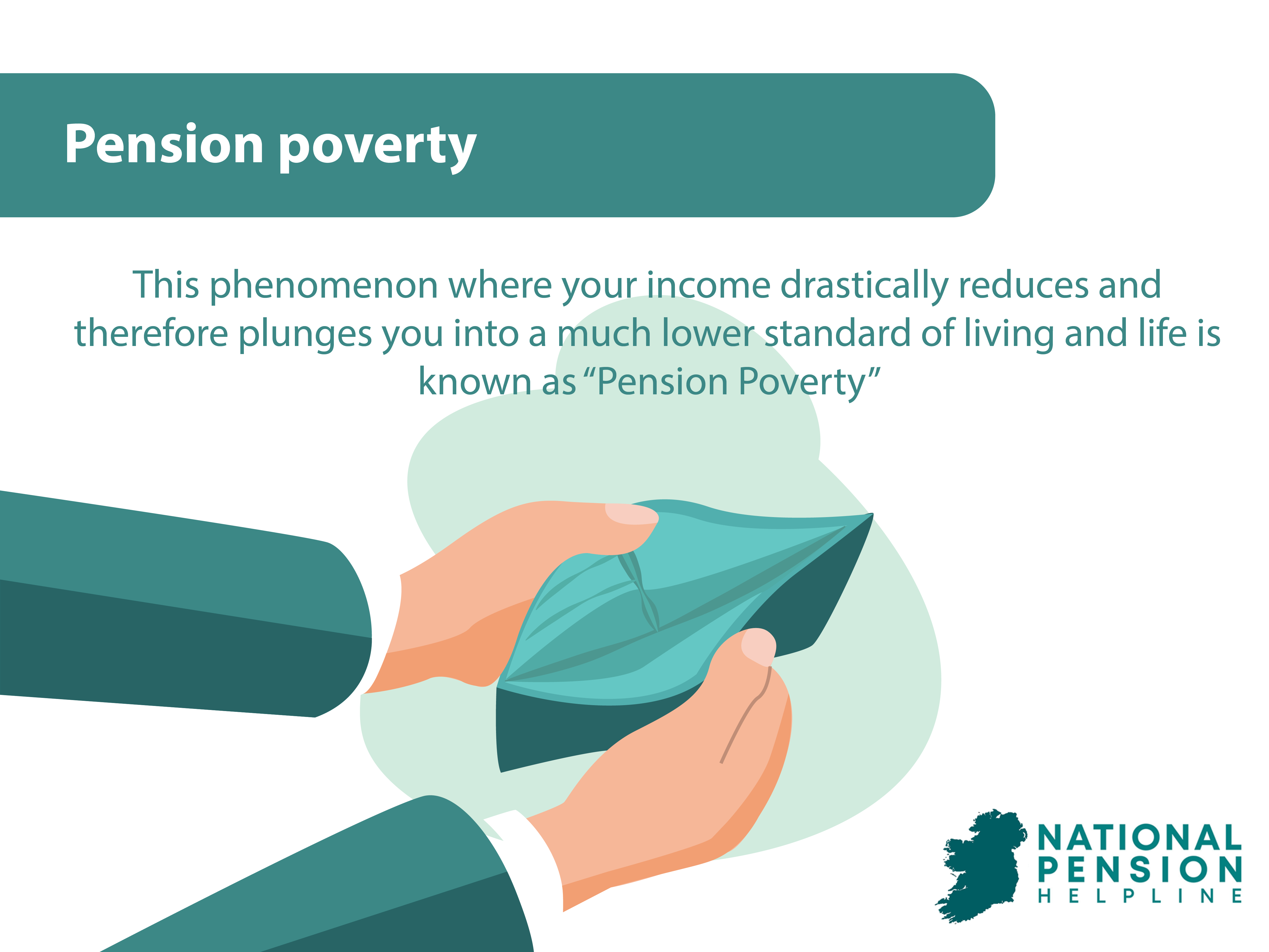
How to retire comfortably in Ireland
In order to retire comfortably in Ireland, you need to make sure you get the right help and you are organised.
Start by building up your pension as early as you can. You don’t need to be approaching the age of retirement to start preparing for it.
Putting money aside for your pension can be done at any age, so be sure to always keep it in mind.
Even if you are well over the age of 65, it is never too late to start availing of government support in retirement. If you are eligible for financial services, be sure to apply and receive what you deserve.
No matter what your pension needs are, you can seek support and help by getting in touch with the National Pension Helpline. With a team of experts trained to get the best for you, they can give you peace of mind in retirement.
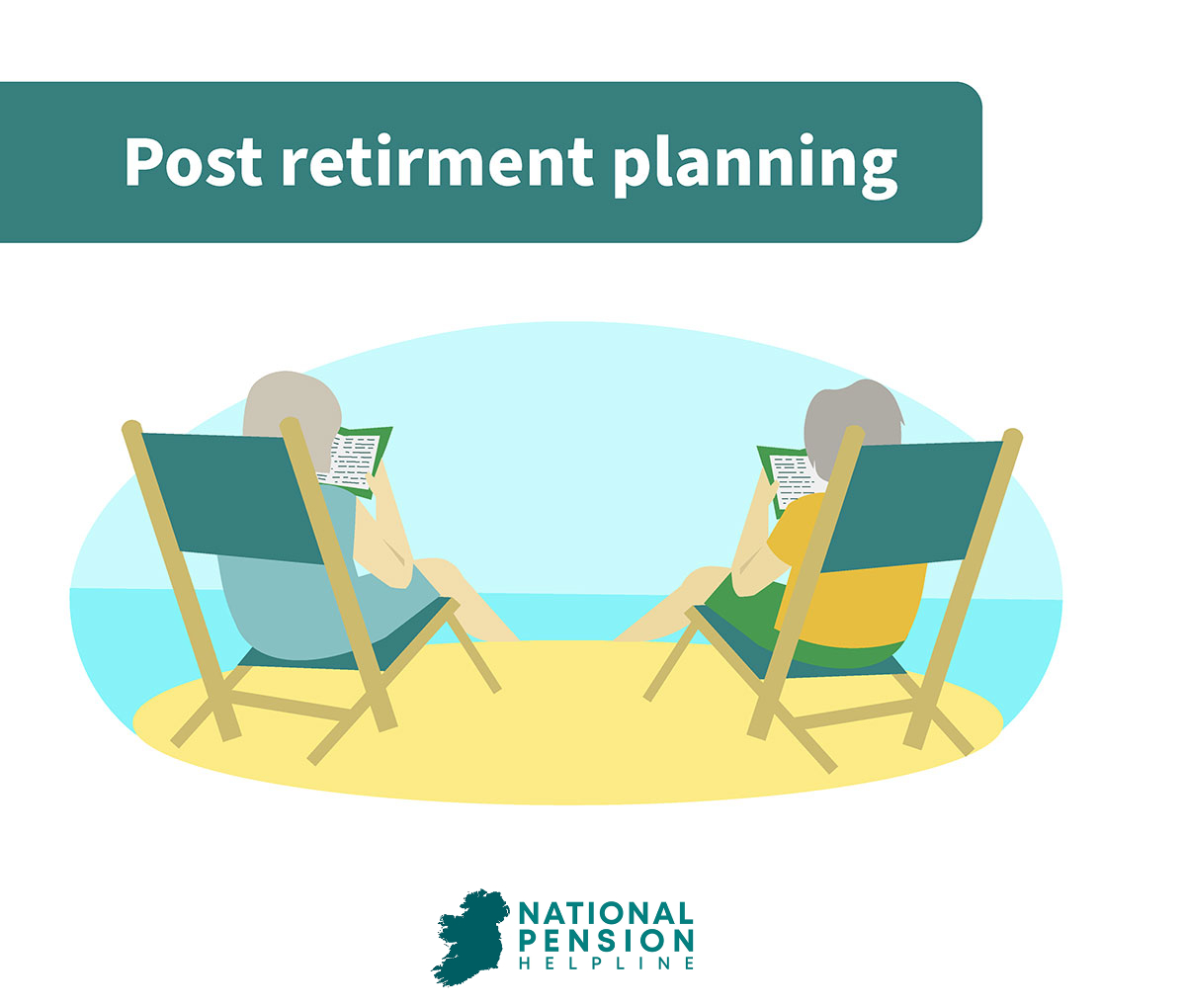
Get ready for retirement today
The National Pension Helpline are here to help you with your retirement. Take our free online assessment to speak with a Qualified Financial Advisor who can best advise you on your specific needs.
It’s never too early or too late to start a pension and plan for your retirement.

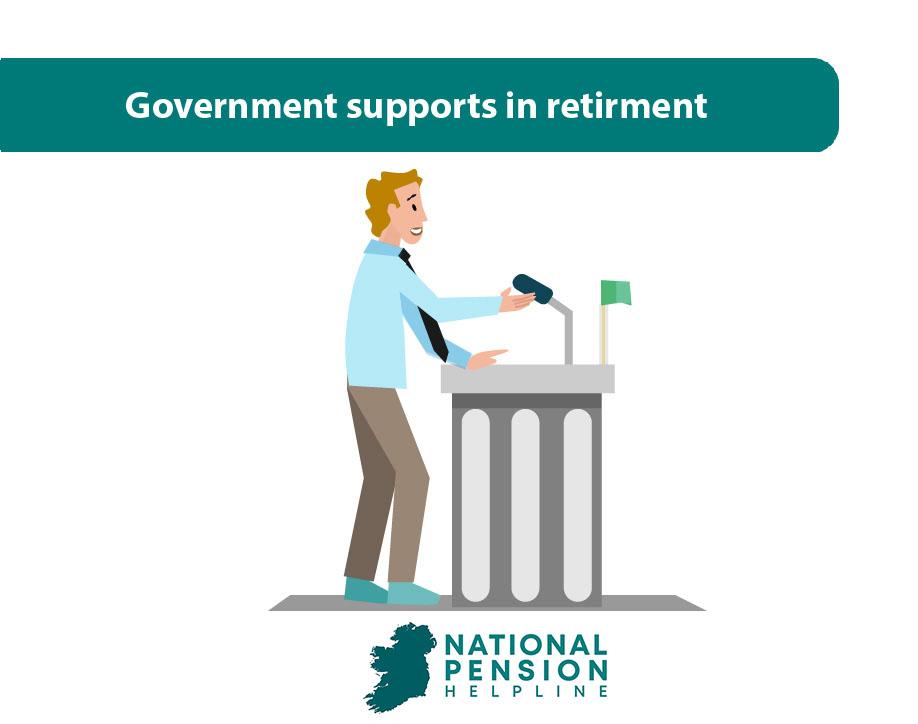
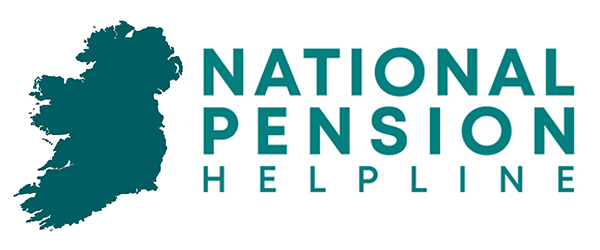

Social Welfare Payments in Retirement
You may not receive any social welfare payments until the age of 66.
You can no longer work to receive these payments. You must also meet certain PRSI requirements.
This will require you to have made 104 or more PRSI contributions. These must be at Class A, H or P.
If you have made your PRSI contributions at Class S, then you are required to have made at least 156.
You can only apply for social welfare payments in retirement from the age of 65 and older. If you have retired younger, then you will have to wait until this age to apply.